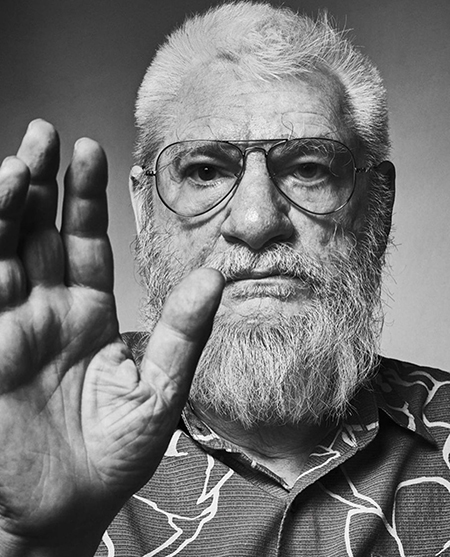reading and scribbling about this shit for years and I've never read Dilthey. I really am lazy.
---
Arendt v Mannheim, Panofsky & Mannheim
Mannheim
To give a still clearer illustration of the 'meaning' character of cultural phenomena, and of its threefold differentiation, we shall mention a concrete example. And we have deliberately chosen a trivial example, so as to make it clear that our concept of the 'cultural' embraces, not merely cultural products endowed with traditional prestige, such as Art or Religion, but also manifestations of everyday life which usually pass unnoticed—and also that these manifestations already display the essential characteristics of meaning as such. Take the following case:—
I am walking down the street with a friend; a beggar stands at a corner; my friend gives him an alms. His gesture to me is neither a physical nor a physiological phenomenon; as a datum, it is solely the vehicle of a meaning, namely that of 'assistance'. In this process of interpretation, the event which is mediated by visual sense-data becomes the vehicle for a meaning which is something entirely different from the visual data and belongs to the sociological field, where it is theoretically subsumed under the category 'social assistance'. It is only in a social context that the man at the corner will be a 'beggar', my friend 'one who renders assistance' and the bit of metal in his hand an 'alms'. The cultural product in this case is solely the event 'assistance', to be defined in sociological terms; in so far as the meaning of the event (by which it is constituted as an event) is concerned, my friend as a psycho-physical individual is quite irrelevant; he enters into the context merely as a 'giver', as part of a 'situation' that can only be grasped in terms of meaning and that would be essentially the same if his place were taken by any other person.
No knowledge of the intimate content of my friend's or the beggar's consciousness is needed in order to understand the meaning of 'assistance' (which is the 'objective meaning' of the situation); it is sufficient to know the objective social configuration by virtue of which there are beggars and people with superfluous cash. This objective configuration is the sole basis of orientation which enables us to grasp the meaning of the event as one exemplifying 'assistance'.
Panofsky 1939
When an acquaintance greets me on the street by lifting his hat, what I see from a formal point of view is nothing but the change of certain details within a configuration forming part of the general pattern of color, lines and volumes which constitutes my world of vision. When I identify, as I automatically do, this configuration as an object (gentleman), and the change of detail as an event (hatlifting), I have already overstepped the limits of purely formal perception and entered a first sphere of subject matter or meaning. The meaning thus perceived is of an elementary and easily understandable nature. and we shall call it the factual meaning; it is apprehended by simply identifying certain visible forms with certain objects known to me from practical experience and by identifying the change in their relations with certain action or events.
from Joan Hart, "Erwin Panofsky and Karl Mannheim: A Dialogue on Interpretation", Critical Inquiry, Spring, 1993
Arendt was with Heidegger. It's too simple to say Panofsky was with Cassirer. Panofsky was a historian; no attachment to philosophy can undermine that. Arendt's attachment to philosophy as constituted in the 20th century made for an insecure humanism; she wrote from the position of the individual under threat. Panofsky could refer to the human sciences without worrying about positivism. I prefer Panofsky's Kant to Arendt's.
Panofsky 1932, Translated 2012.
Even if Dürer himself had commented directly on the ultimate aim of his work (as later artists have attempted on various occasions), it would soon be clear that even these comments miss the true intrinsic meaning of the sheet and, rather than furnish us with its correct interpretation, become themselves objects in urgent need of interpretation.After all, just as the degree of politeness in lifting a hat is a matter of the will and consciousness of the person doing the greeting, but it is not in his power to control what message about his innermost nature others may take from his gesture, so likewise even the artist knows only ‘what he parades’ but not ‘what he betrays’ (to quote an intellectually stimulating American). [C.S. Peirce]
The source of the interpretation of intrinsic meaning is effectively the worldview of the interpreter, as is no less apparent in Heidegger’s interpretation of Kant than it is in the accounts of Rembrandt by Carl Neumann or Jacob Burckhardt. That is, this source of knowledge is fundamentally subjective, and one may say that its absolutely personal nature is even more in need of an objective corrective than either the vital experience of living (with which we grasp the phenomenal meaning) or the literary knowledge (with which we uncover the meaning dependent on content). Such a corrective does exist, and it belongs to the sphere of historically situated factuality which provides a boundary that must not be crossed by any interpretive ‘violence’ in order not to turn it into ‘roving arbitrariness.’
It is a sense of general intellectual history which clarifies what was possible within the worldview of any specific period and any specific cultural circle, just as the history of styles delimits the sphere of what kind of representation was possible in a given context or at any time and the history of types clarifies what was imaginable. In summary we might say, the history of styles instructs us about how pure form coalesces with specific factual and formal meaning within the process of historical change; the history of types instructs us about how factual and formal meaning coalesces with specific meaning dependent on content within the process of historical change; finally, a general sense of intellectual history instructs us about how meanings dependent on content (for example, the concepts of language or the melismas of music) are redolent of the outlook of a specific worldview within the process of historical change.
So, for example, art historians use the intellectual testimonia of the Renaissance (among which naturally the writings of Dürer himself must be included) to show the worldview within which Dürer’s Melancholia united a typus Acediae with a typus Geometriae and thus for the first time brought together in a single conception the sufferings of creatures with a sense of fateless agency. The possibilities of this worldview alone draw a line against what we might otherwise lean towards interpreting as depression [Weltschmerz] in the modern sense. Likewise the intellectual history of the eighteenth century allows historians of philosophy to see the limits of a Kantian ontological exegesis, provided that such an exegesis has the aspirations and the duties of conforming to the rules of historical interpretation.*
*One could conceive of an approach which declares itself independent of historical correctives on principle and only postulates that the picture it constructs of a given phenomenon is in itself consistent and meaningful, no matter whether it fits into any historic circumstances. Such an approach (which neither extracts from texts what they ‘say’ nor what they ‘want to say’ but—adhering to the principle of consistency—what they ‘should have had said’) can however no longer be defined as ‘interpretation’ but rather as creative ‘reconstruction’. Its value or nonvalue is not dependent on the standard of historical truth but on that of systematic originality and consistency. This approach is unassailable as long as it is aware of its transhistorical or, even, extrahistorical aims, but it must be resisted the moment when it is tempted to defend itself by replacing history with some other aspiration.
Panofsky, "The History of Art as a Humanistic Discipline"
Thus, while science endeavors to transform the chaotic variety of natural phenomena into what may be called a cosmos of nature, the humanities endeavor to transform the chaotic variety of human records into what may be called a cosmos of culture.
There are, in spite of all the differences in subject and procedure, some very striking analogies between the methodical problems to be coped with by the scientist, on the one hand, and by the humanist, on the other.*
*See E. Wind, Das Experiment und die Metaphysik, Tiibingen, 1934, and idem, "Some Points of Contact between History and Natural Science," Philosophy and History, Essays Presented to Ernst Cassirer, Oxford, 1936, p.255ff. (with a very instructive discussion of the relationship between phenomena, instruments and the observer, on the one hand, and historical facts, documents and the historian, on the other).
David Wagner, "Peirce, Panofsky, and the Gothic"
Abstract
This paper aims to show that Peirce’s analogy of scholastic logic and Gothic architecture merits more than the dismissive note John F. Boler grants it in his essay “Peirce and Medieval Thought” (Boler 2004). Peirce does not just anticipate art historian Erwin Panofsky’s view of an analogy between the scholastic Summa and the Gothic cathedral. Habitus and habit-taking play a vital part in both analogies. I present William Whewell as a likely source of inspiration arousing Peirce’s interest in Gothic architecture, and suggest that Edgar Wind played a part in transmitting to Erwin Panofsky the Peircean idea of unconscious beliefs as expressed by habits. Thus this essay deals with two connections: on the one hand, the relation between ideas as embodied in the structure of scholastic treatises and of cathedrals, and on the other, the concept of habit linking Peirce and Panofsky. Research on the latter benefits from the publication of Panofsky’s correspondence, which reveals that his study of Gothic architecture and Scholasticism commenced four years earlier than hitherto suspected.
I really doubt Panofsky needed much prodding.















